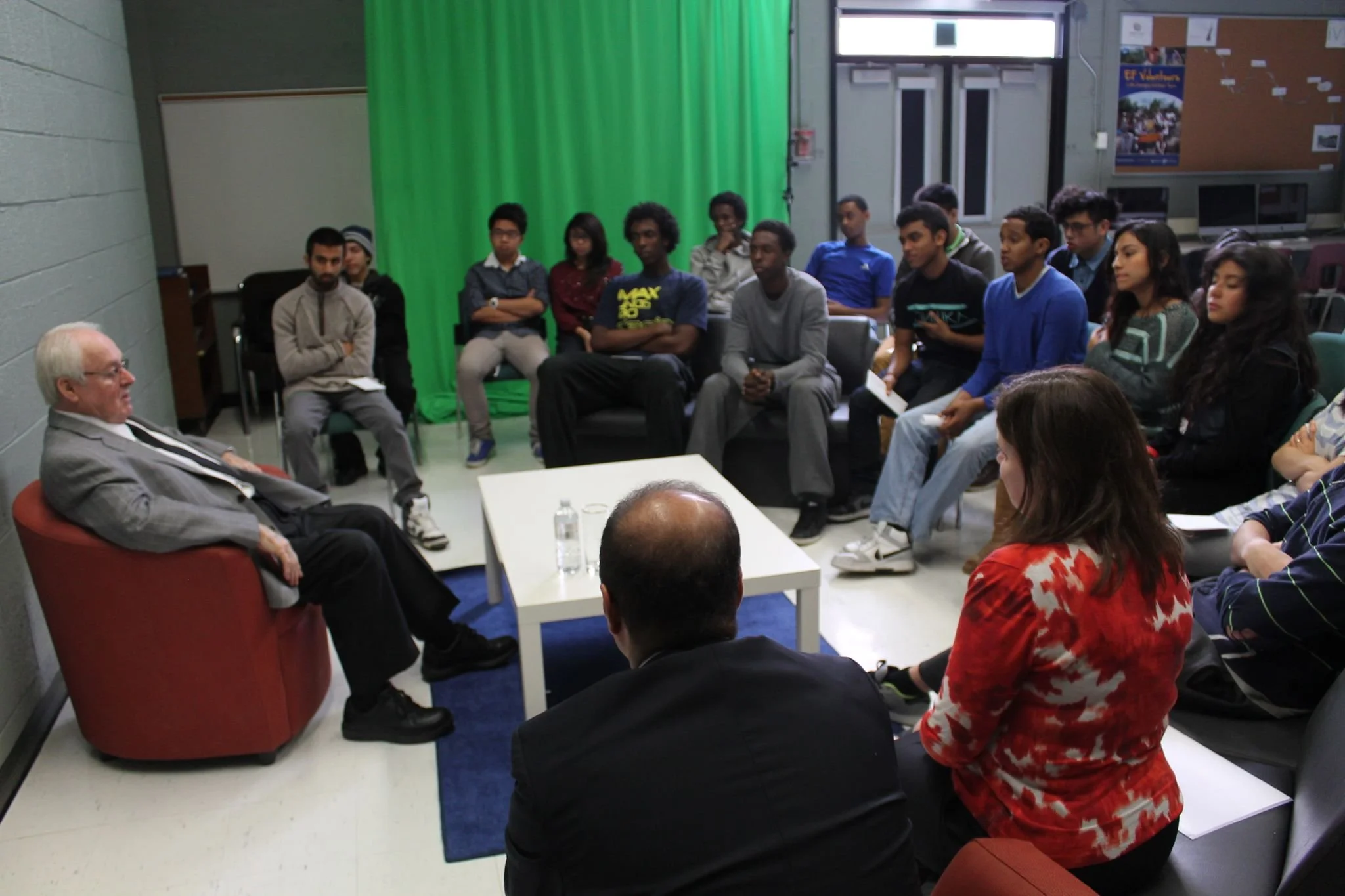Executive-Level Learning for Underserved Students at John Polanyi Collegiate Institute in Toronto
In 2010, Manon Gardner, then Chief Academic Officer, Toronto DSB, challenged Roger Martin in an email: It’s all well and good that you’ve done Integrative Thinking with MBAs, what about some of the most underserved public school students? The result: a redesign of the Ontario Ministry of Education grade 12 Business Leadership (BOH 4M) based on the application of Integrative Thinking to real-world problem solving. 15 years later, Business Leadership course at John Polanyi Collegiate has run over 15 times with over 400 alumni; alumni who now work at companies like Shopify, B and C. Its longtime teacher, Rahim Essabhai, has been recognized with the Prime Minister’s Award for Teaching Excellence.
The course culminates in a 6–8 week consulting project for community organizations and businesses. Students recruit businesses themselves or connect through the Cooperative Education Department to find engaged partners. Past partners include Parks Canada, Metrolinx, Baycrest, North York Harvest Food Bank, and Big Brothers Big Sisters Canada. Projects have tackled marketing, recruitment, HR, and client services.
”If I’m faced with a problem I look at both sides of the extremes and combine them together to come up with the ultimate solution. I never really looked at life that way before. I felt like you had to choose one or the other. Since I have this tool I’m more willing to [learn from options] and I’m not afraid to be proud of the decisions I make.” - Jenny
Course Structure
In the course resource binder, the overview states: In order to be effective in any career, business or otherwise, students must be able to effectively solve tough problems. In the world of business, these problems take on a wide variety of dynamics, including human (“I hate working with this person!”), operational (“We can’t seem to get this system to work.”) and strategic (“Fundamentally, what should our business be selling?”) just to name a few. This course focuses on helping students:
Become aware of their own beliefs about what leadership means
Understand basic principles of judgement and decision making that affect people in organizations
Explicitly develop problem solving skills, and
Apply the problem solving and management skills to a live challenge.
BOH4M at JPCI is structured into 5 units:
Introduction to Leadership - Students study leaders they admire, exploring how mindset shapes action.
Exploring Mental Models - Students study the science of mental models and design activities that allow their peers to experience the influence of mental models on perception, decision-making, and problem-solving. The Ladder of Inference is introduced in this unit.
Organizational Complexity - Grounded in systems thinking, students map complex organization systems, test assumptions, and learn the Causal Model.
Business Problem Solving - Through case studies, students practice the Integrative Thinking process, using examples such as Ben & Jerry’s.
Culminating Project - Students apply their Integrative Thinking problem solving and innovation skills to real-world challenges with community partners.
Why It Matters
When I-Think first partnered with JPCI, the school was in Canada’s lowest-income postal code. Students worried about crossing gang territories just to attend. Inside, skipping class and hallway hangouts were common.
The partnership was part of a strategic effort, creating a new culture of engagement and high expectations at JPCI, showing that rigorous business problem-solving is possible for all students.
RJS Scholarship Founder Sue Short, a retired teacher, recalls “I remember a student whose parent had passed away within the week before the client presentation. Their group stepped up to take on this student’s parts in the presentation. The morning of the presentation, the student showed up saying that it was important to them to see this through. The presentation ended with a group hug, and tears, like I had never seen before. The student was crying, so were their group members, and us in the audience were in awe of their bravery and commitment.”
“Before, I was one of those guys, when I came up with one idea I’ll just stick with it. I was just too stubborn to change it. Now I’ll double check and make sure that I can make it better… like I write with pencil… then I read it over again, and it just continues flowing, like I expand, and I erase, and my answers just keep getting better and better throughout. I used to write everything with pen before, but I started writing in pencil.” - Jabril


